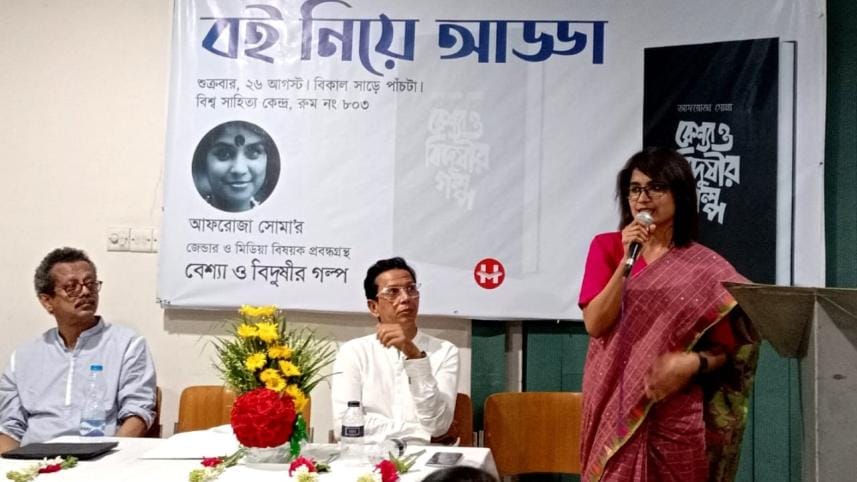‘Beshya O Bidhushir Golpo’ questions a gender-biassed society

Fifty years after independence, women in Bangladesh are still considered to be second-class citizens, irrespective of religion or class. This state of affairs is not related to numbers, but to power. Such are the issues placed at the centre of Beshya O Bidushir Golpo (Hasan's, 2021), a collection of essays written by poet, essayist, and gender and media researcher, Afroja Shoma. The book was released the Ekushey Boi Mela 2021.
A discussion session regarding the book was held at the capital's Bishwa Shahitto Kendro on Friday, August 26, drawing conversations among writer, researcher and political analyst Mohiuddin Ahmed; writer-translator and journalist Rowshan J Chowdhury; poet and editor of the literary magazine, Lok, Aniket Shamim; poet and fiction writer Mujtaba Ahmed Murshed; poet and journalist Jewel Mostafiz; and fiction writer Bakibillah.
In order to change social mindsets and attitudes, the author believes that one has to reach out to the larger population of the society. Beshya O Bidushir Golpo will play an important role in spreading the message of change to the urban population. However, she feels that there is a need to think more about how to convey these ideas of change to the rural and marginalised people.
"Beshya O Bidushir Golpo has portrayed the fact that the character and identity of women and men are mainly created through socio-economic-cultural practices existing in the society", said Rowshan J Chowdhury at the event.
Poet Jewel Mostafiz shared that the book contains important research on the type of language used by mainstream media in reporting news of rape, torture, and abuse of women. Newspapers are not gender sensitive, the poet stated. Shoma's book can be an important text for those working in the media in the country.
Writer Mujtaba Ahmed Murshed pointed out that the book highlights how masculinity imprisons not only women but also men.
The book contains a total of four chapters and 27 essays.
To what extent have we achieved women's liberation half a century after Bangladesh's independence? How are women still treated as second-class citizens in this country? What is the responsibility of the state behind the "minority status" of women as a marginalised gender? How does the language of news reports on rape and violence against women in the Bangladeshi media continue the intolerance and insensitivity that exists against women? How has this patriarchal social system shackled even men? Afroza Shoma's book of essays examines these urgent issues.
The book is available for sale on Rokomari.



 For all latest news, follow The Daily Star's Google News channel.
For all latest news, follow The Daily Star's Google News channel.
Comments